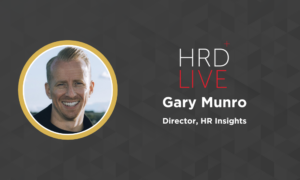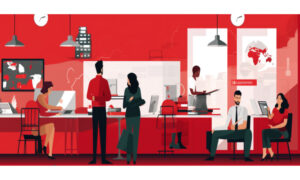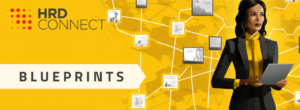Hitachi on boosting engagement through hybrid working
- 6 Min Read
Stephen Pierce, CHRO at Hitachi Europe, outlines how communication, technology and flexibility are key to engagement in the time ahead.
- Author: Stephen Pierce
- Date published: May 19, 2021
- Categories

A finding that I have come across in our employee survey results, and those of other companies, is that engagement scores typically have gone up in the last year. I think a lot of this comes down to the fact that we have made a much greater effort with communication and connecting with everybody regularly, because we have been unable to bump into each other in the office.
To build on this change, managers must have a more structured and deliberate approach to connecting with their staff regularly. I think we have been much more open to keeping everybody informed about what is going on and making it clear that we genuinely care about team welfare and wellbeing.
The importance of flexibility
We have endeavoured to allow teams to work flexibly, to adapt to the needs of their circumstances, such as working different hours if necessary. Take home teaching, where parents needed time to educate their children and to complete their work around it. We have tried to be far more open to the needs of everybody, which has helped engagement.
In terms of engagement strategy, we need to recognise that not everybody’s in the same place, and people have different needs; there is no one-size-fits-all solution to the way we should operate, but we can’t tailor everything to every individual. From a talent point of view, we need to ensure we have an environment which is going to be attractive in terms of presence versus working remotely.
The challenge we then have is how do we keep that going? How do we continue to build employee engagement in the future, when perhaps the fear of the office could be a barrier? How do we guarantee that we continue the good things we’ve started doing?
Communication as a key to engagement
We will need to ensure that we communicate more actively, we keep a close watch on wellbeing, we consult and see how things are going, because we just can’t have those casual conversations that we used to have. In the time to come, we can’t simply walk away and say ‘let’s get back to how we were’.
Technology has clearly been a huge enabler for us through the past year. Without it, we really would have struggled. We have seen this great advancement in how we use technology in the workplace, and recognise that even the most technophobic individuals have had to embrace it.
How we use it is something we are going to have to work our way through. For example, how do you have a meeting if you have got some people online and some people in a meeting room? If it is half and half, then there will potentially be people in the room looking at their screen and not at the presenter, because the presenter is on the screen talking to the people on the video link as well. You’ve got this slightly awkward dynamic.
Some leaders have said to me, ‘in my company, we’re meeting and everybody’s in together’. Other people have said to me, ‘we’re only going to have meetings where everybody’s online’. Is it going to be the only way that we connect? With so many people in different locations, it makes sense to use video technology. We need to keep building on that because we won’t have the opportunity to meet and connect as often as we used to, and therefore we need to use other tools more than we have in the past.
Harnessing the benefits of innovation
One thing we’ve done in the past year is relaunch our intranet, updated, upgraded and improved, which has been a great communication tool. I don’t think we will go backward in the use of technology, particularly around communication. Traditionally, HR departments would have had paper files and documents, but now they’re going to be online, as is the case of most organisations today.
We embarked on a digitisation process and if we hadn’t done so, then over the last year it would’ve been immensely difficult. Changing the way we think and the way we operate has been a journey. It’s been a topic of conversation for a number of years, but I think we have taken a leap forward.
Organisations that want everybody to be co-located all the time will attract certain people, but other professionals will say ‘actually, I want a degree of flexibility’. Therefore, we need to achieve the right balance; we need to recognise that, for example, professionals early in their career will want contact and they will want development. They will want opportunities to connect in ways that others who have perhaps already got those connections and got their network won’t need.
Meeting the needs of the workforce
To create those opportunities and enable development then we have to go back to the purpose of the office. We have to ensure that we create those purposes for teams to be together. Furthermore, the overriding point is around the purpose of the organisation as well, which will be a key driver, particularly for new generations entering the workforce.
Professionals are asking, ‘why am I doing this? Do I want to be here?’ The whole area of purpose is going to be more and more critical. Hitachi has a great purpose, which is to contribute to society for the development of superior original technology and products. That contribution to society is a fantastic explanation of why we’re here and I think that’s always a very strong purpose in our organisation.
Without a strong sense of purpose, we can have great working practices and other attractive features, but I don’t think we would build strong engagement for all staff, particularly young professionals for the longer term, without it. I think that’s our challenge: not losing our purpose, not losing our direction, just because we’re working differently. We can’t make it a choice between working differently or maintaining a sense of purpose. It is both and that is a challenge.








